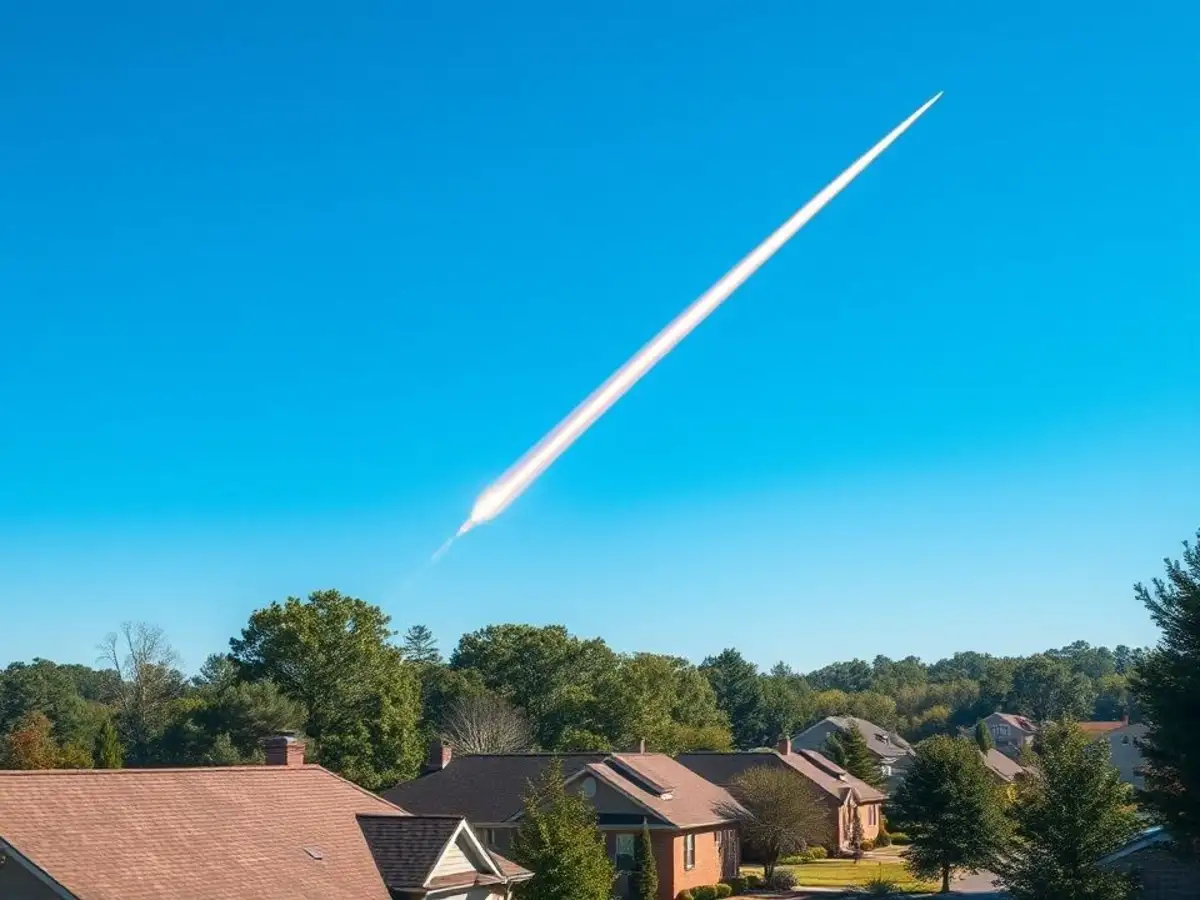Georgia Home Struck by Ancient Meteorite Traced to Asteroid Belt
MCDONOUGH, Ga. – A Georgia homeowner is still repairing damage after an extraordinary visitor from space—now confirmed to be a 4.5-billion-year-old meteorite—punched through his roof in late June, startling the neighborhood and sparking major scientific interest.
The object, now officially named the McDonough Meteorite, blazed across the Southeast sky on June 26, creating a fiery streak before smashing into the home outside Atlanta. According to researchers at the University of Georgia (UGA), the meteorite originated in the main asteroid belt between Mars and Jupiter.
Older Than Earth Itself
Scott Harris, a planetary geologist at UGA’s Franklin College of Arts and Sciences, analyzed recovered fragments and found that the meteorite’s material formed long before Earth existed. Harris says the rock likely came from the breakup of a much larger asteroid roughly 470 million years ago.
“In that breakup, some pieces get into Earth-crossing orbits, and if given long enough, their orbit around the sun and Earth’s orbit around the sun end up at the same place, at the same moment in time,” Harris told UGA’s news service.
Small Size, Big Impact
The meteorite fragmented upon entering Earth’s atmosphere, with the largest piece—about the size of a cherry tomato—striking the Henry County home. The impact tore a hole through the roof, damaged HVAC ductwork, and dented the wood floor.
Neighbors reported a sound “as loud as a gunshot,” but thankfully, no injuries were reported.
UGA was granted access to study 23 grams of the 50 grams recovered, partnering with Arizona State University for further research.
Rare but Increasingly Documented
The McDonough Meteorite marks the 27th meteorite recovery in Georgia. Harris noted that such events were once expected only once every few decades—but advances in technology and public reporting mean more are now being detected and collected.
“This is something that used to be expected once every few decades and not multiple times within 20 years,” Harris said.
Additional fragments are slated for display at the Tellus Science Museum near Atlanta, giving the public a rare opportunity to see a cosmic object older than the planet itself.
Insurance and Recovery
While the University of Georgia has not confirmed whether repairs on the home are complete, experts note that meteorite damage is generally covered under standard homeowners’ insurance policies.
The final scientific word on the McDonough Meteorite is still to come—UGA researchers plan to publish a detailed paper on the rock’s composition and dynamics later this year.
What do you think about rare space events like this? Share your thoughts with the Saluda Standard-Sentinel and join the conversation at saludastandard-sentinel.com.







